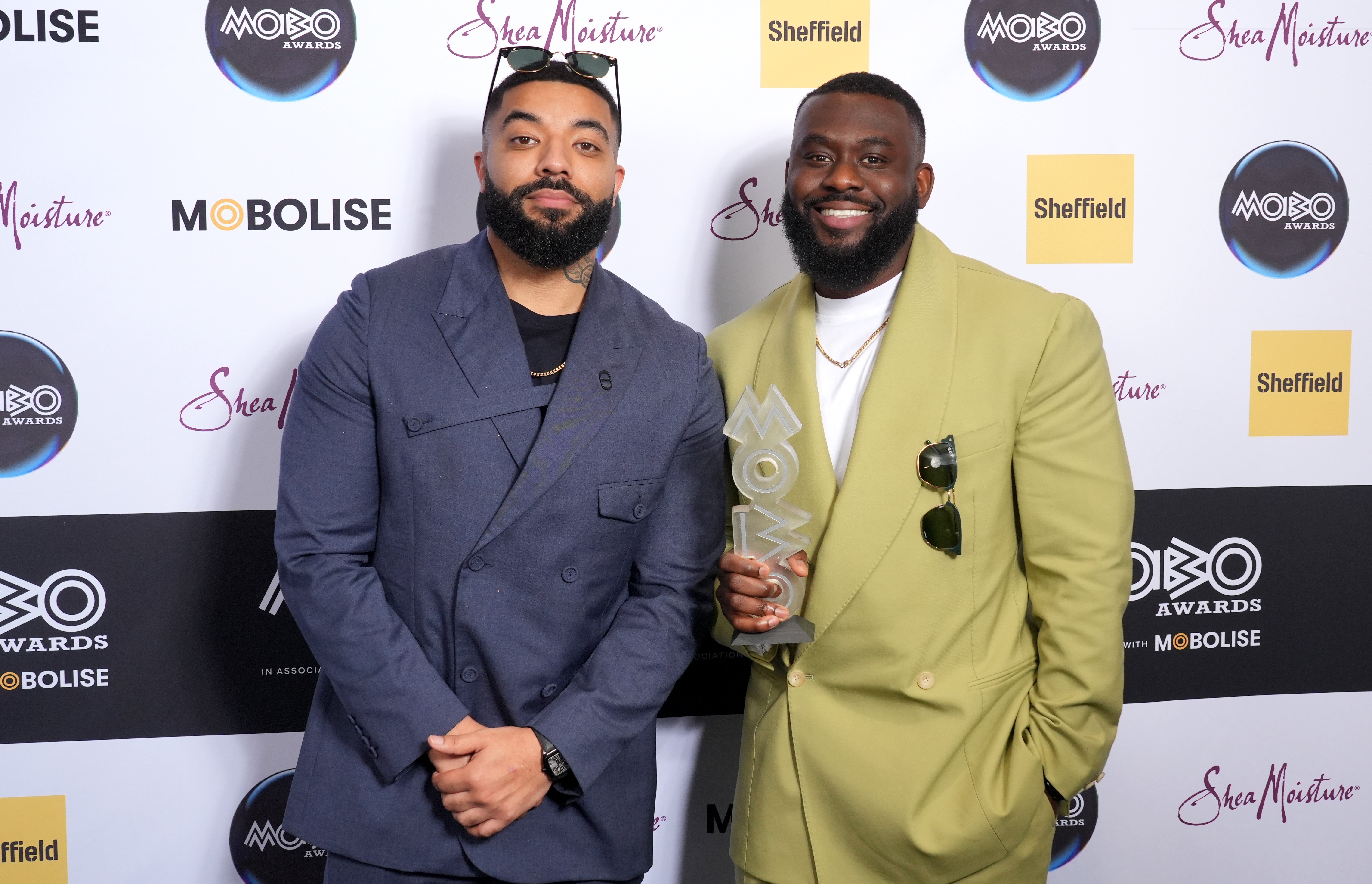The ShxtsnGigs podcast row exposes the normalisation of attacks on Black women
In failing to challenge the racist comments of Andrew Schulz, the podcast duo let down their listeners – and exposed their own prejudices, writes Femi Oluwole


James Duncan and Fuhad Dawodu, two of the most loved Black British men on TikTok and hosts of the ShxtsnGigs podcast, are now under fire for their behaviour on a podcast with US comedian Andrew Shulz.
The duo are known for their hilarious discussions of everyday young life, their coverage of viral online anecdotes, and their infectious laughter. Despite having almost no sense of political correctness, they are cherished by a lot of millennials and Gen-Zers on TikTok.
But, by their own admission, they failed to respond correctly to Schulz’s jokes at the expense of Black women.
Clips of the July podcast have been circulating, wherein the hosts discuss the “Black girlfriend effect” – the phenomenon that supposedly sees white men who date Black women learn to dress and groom themselves better.
At one point during the decision, Schulz interjects to imply that Black women are more likely than white women to “complain about s*** all the f***ing time” and “slap the f*** out of” their boyfriends. "They grow their beard because they need a cushion when they get slapped”, says Schulz. “I think the Black girlfriend effect, it might be a protective instinct."
His comments don’t just play into tired sexist stereotypes about nagging wives, but also lean into the racist stereotype about Black people being aggressive. This intersection of sexism and racism against Black women is called misogynoir, and much of James and Fuhad’s Black female audience hoped they would stand up to it.
Instead, they laughed along. Now, in their defence, they did eventually try to bring the conversation back to the original topic. It’s also worth pointing out that when you’re on these panels and podcasts, especially as a Black person, there is an intense pressure to go with the flow so you’re not seen as being “militant”.
On Monday, after a stormy weekend for their comment sections, they apologised. They acknowledged that Andrew Schulz’s comments were racist, and that they wrongly tried to just laugh their way to the next topic. But is that enough?
Their apology mentioned the racism, but it didn’t focus on Black women – ie the group being targeted – specifically. Sadly, that’s precisely where they failed in the first place: failing to have Black women’s backs. It’s especially disappointing, given that Black women face a nasty combination of two of the most prevalent forms of bigotry.
Schulz has not yet commented on the controversy.
Many of us who have been fans of the ShxtsnGigs podcast for a long time have been nervous about something like this happening for some time. Their language around issues such as obesity, sexuality and women has often crossed the line in ways that show a lack of awareness of where the line is. So, without a clear sense of political right and wrong, it felt like it was only a matter of time until something like this happened.
But are we expecting too much from podcasters? Male podcasts have set the bar pretty low, but even famously “dark” comic Shane Gillis stood on business on the exact same podcast a few months prior. Andrew Schulz was using pictures of people with Down Syndrome to make fun of Gillis, and the comedian came to their defence, saying it’s “not funny” to “use them as an insult”. That small act of compassion earned him a huge amount of goodwill with progressive audiences, who can now listen to his dark jokes safe in the knowledge that there’s some heart behind the snark.
Young audiences now expect their idols and influencers to stand for something. We don’t need them all to be political activists, but as two Black men who talk about women constantly – especially with a significantly Black female following – standing up for Black women when they see people coming for them is the bare minimum we should expect.
I hope James and Fuhad do step up, and at least occasionally act as a force for good. They are hilarious, and talented, and I hope that they can learn to do better. But I’m also acutely aware that at the end of the day, I’m not a Black woman myself, and their apology isn’t mine to accept.
Join our commenting forum
Join thought-provoking conversations, follow other Independent readers and see their replies
Comments
Bookmark popover
Removed from bookmarks